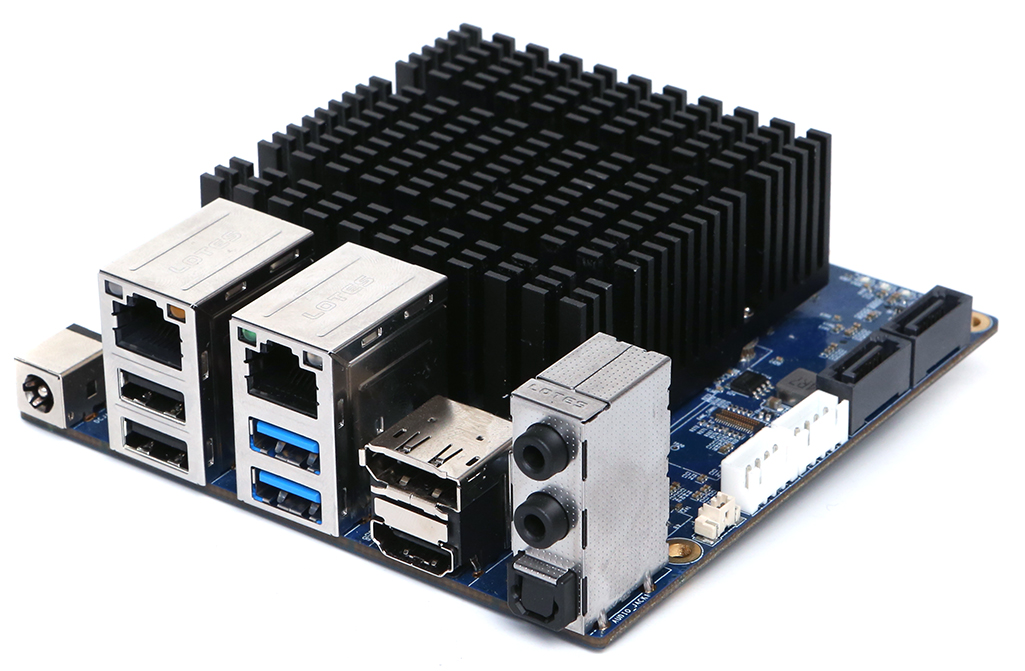ODROID-H2
Key features: Intel, dual NIC, SATA, M.2 NVME, up to 32 GB RAM

| Old as ov Nov 2020 | old |
| Name | ODROID-H2 |
| Year | 2018 |
| SOC | Intel Celeron J4105 |
| CPU | Intel Celeron J4105 |
| Cores | 4 |
| Clock | 2.3 GHz |
| Bits | 64 |
| GPU | Intel UHD Graphics |
| RAM | up to 32GB |
| Storage | 2 x SATA 3.0, eMMC |
| USB | 2x USB 2.02x USB 3.0 Host |
| Video out | 1 x DisplayPort 1.2, 1 x HDMI 2.0 |
| Audio in | |
| Audio out | |
| Network | 10/100/1000 Ethernet * 2 |
| Peripherals | 14V ~ 20V 4A (5.5 x 2.1 mm ) |
| Power source |
ODROID-H2 Background
The ODROID-H2 is an Intel based single board computer from Hardkernel. While most of their single board computers have been ARM based this one is Intel based and features a Celeron processor. Obviously the most notable thing about this system is that it is intel-based but the second most noteworthy thing is that it features dual NICs. Both of these NICs are gigabit Ethernet. This makes it a good candidate for a firewall/router or potentially even a Snort sensor. This system came out in 2018. It includes an Intel Celeron j4105 CPU/SOC. It has four CPU cores and the clock speed is set to 2.3 gigahertz. It is of course 64-bit. The GPU included is Intel UHD graphics 600. For video output it includes both DisplayPort 1.2 and HDMI 2.0. while it still provides the option to use an eMMC card it also has two SATA 3.0 ports which is a really nice thing especially if you’re setting up a Nas or you just want large amounts of fast storage. It includes two USB 2.0 ports and two USB 3.0 ports. It includes two slots where you can insert RAM sticks and can take up to 32 gigs of RAM. If you really care about fast storage it also includes an M.2 socket that supports NVME drives. Another thing that makes this board stand out is that it includes a real-time clock and BIOS battery backup.
Overall this board includes a lot of really neat features that you may not find in other ODROID boards. The two biggest features of course being Intel architecture and dual NICs. Of course if you really need loads of RAM or if you really need fast storage or you’re setting up a Nas or something the other key features might be more crucial for you. In that case you might consider the RAM slots, the SATA ports, or the M.2 slot to be the defining features.
